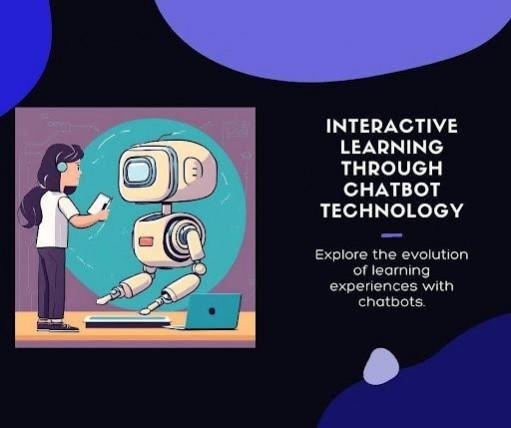
AI has revolutionized chatbots, transforming them into intelligent conversational agents that learn and adapt from user interactions. Using advanced machine learning and natural language processing, adaptive chatbots refine responses and evolve with user feedback. These dynamic chatbots enhance personalized education, customer support, and more, meeting the growing demand for intelligent, adaptable AI-driven experiences across various domains.
Revolutionizing User Interaction
Adaptive chatbots represent a significant departure from traditional rule-based chatbots. Unlike their predecessors, which rely on fixed, predefined responses, adaptive chatbots can dynamically learn and adapt from user interactions. This capability allows them to offer personalized responses that improve over time, making interactions more engaging and efficient.
Key Components of Adaptive Chatbots:
Adaptive chatbot systems integrate essential components such as natural language processing (NLP), machine learning algorithms, and user feedback to enable interactive learning and adaptation. NLP allows chatbots to understand, interpret, and produce human language using techniques like named entity recognition, part-of-speech tagging, tokenization, sentiment analysis, and contextual embedding.
Machine learning algorithms enhance chatbot performance through user interactions, employing supervised learning for intent classification, unsupervised learning for pattern recognition, and reinforcement learning for optimizing conversation strategies. User feedback, including ratings, comments, and engagement metrics, helps chatbots refine their responses. This continuous learning process results in more precise and tailored interactions, improving user experiences over time.
Applications in Education and Customer Service
Adaptive chatbots have found extensive applications in personalized education and customer support, significantly improving outcomes in these fields.
Personalized Education:
Adaptive chatbots can dynamically modify teaching strategies by analyzing student performance data, offering additional resources for struggling students and advanced content for those excelling. They provide real-time, personalized feedback on assignments, helping students identify areas for improvement while offering emotional support and motivation tailored to each student's needs. This personalized approach enhances the learning experience, ensuring that each student receives the appropriate level of challenge and support.
Customer Support:
By analyzing customer queries and feedback, adaptive chatbots improve their knowledge base, offering accurate and up-to-date information. They enhance customer satisfaction by personalizing responses based on customer profiles and interaction history, leading to better support experiences and fostering greater customer loyalty and retention.
Technological Advancements
Recent advancements in machine learning algorithms and NLP have significantly enhanced the capabilities of adaptive chatbots.
Deep Learning Techniques: Techniques like Convolutional Neural Networks (CNNs) and Recurrent Neural Networks (RNNs) have greatly improved natural language understanding in chatbots. Transformer-based models, such as BERT, have further enhanced the accuracy and fluency of chatbot responses.
Reinforcement Learning: Reinforcement learning (RL) optimizes chatbot strategies by maximizing a reward signal, such as user satisfaction. RL-based chatbots continuously refine their strategies based on user feedback, leading to more engaging and efficient interactions.
Challenges and Future Directions
Despite their advancements, adaptive chatbots face several challenges that need to be addressed for their widespread adoption.
Privacy and Security: Ensuring the secure handling of sensitive user data is paramount. Developing privacy-preserving learning algorithms and secure data management practices is crucial to maintaining user trust.
Complexity of Human Language: Understanding the nuances of human language, such as sarcasm and metaphors, remains a complex challenge. Enhancing context-aware and emotion-sensitive language models is essential for improving chatbot interactions.
Balancing Automation and Human-like Interaction: Finding the right balance between automation and natural conversation flow is critical. Future research should explore adaptive conversation strategies that dynamically adjust the level of automation based on user preferences and interaction context.
To wrap up, interactive learning and adaptation are transforming chatbot technology, enabling more personalized, engaging, and efficient user experiences. The work of Abhi Ram Reddy Salammagari and Gaurava Srivastava highlights the immense potential of adaptive chatbots in various domains, including education and customer support. Addressing privacy, language complexity, and interaction balance is key for future adaptive chatbots, revolutionizing natural and beneficial human-machine interactions.

















